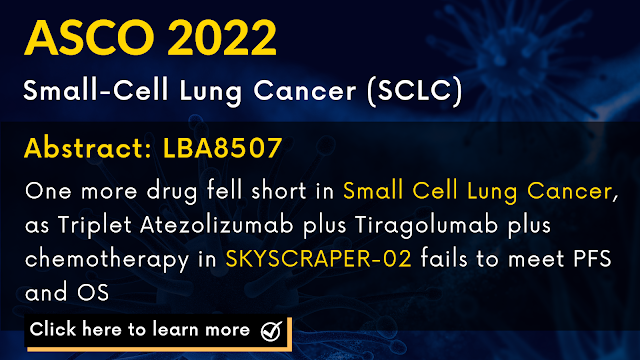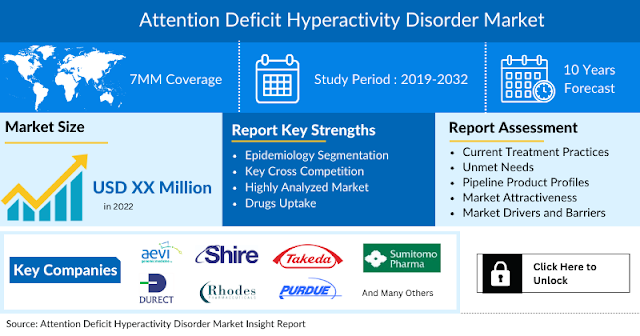Yet another failure in treating Small-Cell Lung Cancer as Roche's much-anticipated anti-TIGIT immunotherapy fails in Phase III
ASCO 2022: SKYSCRAPER-02 fails
The primary results of phase III SKYSCRAPER-02 trial reveals that atezolizumab + carboplatin + etoposide with or without tiragolumab fails to show significant results in patients with untreated extensive-stage small-cell lung cancer (ES-SCLC).
Etoposide Mechanism of Action: Type II DNA topoisomerase inhibitors
Atezolizumab Mechanism of Action: Cytotoxic T lymphocyte stimulants; Programmed cell death-1 ligand-1 inhibitors
Tiragolumab (anti-TIGIT) is a novel immune checkpoint inhibitor that is present in many cancers. TIGIT expression is highly correlated with PD-L1 expression, and tiragolumab is a human anti-TIGIT monoclonal antibody that may synergize with other immunotherapies.
With a median follow-up of 14.3 months, the median PFS in the primary analysis set, which excluded patients without brain metastases, was 5.4 months. The median PFS in the placebo group was 5.6 months. The interim OS in the primary analysis set was 13.6 months in both groups.
With a median follow-up of 13.9 months, the median PFS in the complete analysis set was 5.1 months in the tiragolumab group and 5.4 months in the placebo group. The interim OS in the complete analysis set was a median of 13.1 months and 12.9 months.
KOL insights
“TIGIT as a target in small cell lung cancer is probably not worth further study, but I think beyond that…our broader commitment across a range of cancers remains steadfast. We’re not stepping back at all.”–Expert Opinion.
“Allowed (un)treated asymptomatic brain mets. No difference in PFS & OS. The expectations were different for anti-tigit. Thas’it”. –Expert Opinion
Conclusion
There has been a heated competition among the next-generation immunotherapies; therefore, the development of TIGIT targeting therapies has accelerated. Until the disappointing Phase III SKYSCRAPER-01 (NSCLC) and SKYSCRAPER-02 trial (SCLC) findings, TIGIT was pretty much expected to be a new generation immunotherapy asset. The primary endpoint of PFS in the phase III SKYSCRAPER-01 trial (NCT04294810) evaluating tiragolumab plus atezolizumab in patients with PD-L1–high locally advanced or metastatic NSCLC was not met in an interim analysis. While multiple checkpoint blockade strategies since PD-(L)1 have flopped, it is evident that companies are not giving up on next-generation therapies just yet. Roche continues to believe that TIGIT may have some significance in cancer treatment, and they will share additional data from tiragolumab research as they become available.
Along with Roche’s anti-TIGIT molecule, a number of other big pharma companies have also invested in anti-TIGIT molecules, which include BeiGene Ociperlimab, which is in Phase III stage of development for NSCLC; early and mid-stage active players include Innovent Biologics, BMS/Compugen, Astrazeneca, iTeos Therapeutics/GSK. Additionally, Gilead and Arcus left analysts guessing with a non-data disclosure on their candidate domvanalimab only a day before Roche's tiragolumab bombshell in May. In the aftermath, GSK and iTeos indicated that their anti-TIGIT therapy trials would be delayed.
In contrast, another next-generation immunotherapy target has also entered the field of oncology. BMS's Relatlimab is one such example. With the recent approval of Relatlimab in Melanoma, BMS has made Lag-3 the third immune checkpoint mechanism to enter the oncology settings. It is important to mention that ES-SCLC is aggressive and difficult-to-treat lung cancer with precedence of emerging therapy failure. However, the recent late-stage failure in Lung Cancer has raised concerns among investors and medical professionals.
Recommended- ASCO Conference 2020 | ASCO 2020 Abstracts | ASCO 2021 Highlights | ASCO Medical Conference | ASCO 2021 | ASCO 2021 Conference | when in ASCO 2021 | 2021 ASCO | ASCO US | ASCO 2022 Annual Meeting | ASCO Abstract 2022 | ASCO 2021 Abstract
Read these Market Research Reports
Viscosupplementation Devices Market | Transcatheter Treatment Market | Peripheral Nerve Repair Devices Market | Medical Marijuana Market | Hypertrophic Cardiomyopathy Market | Allergic Asthma due to Dermatophagoides Farinae Market | Otitis Media Market | Transthyretin Amyloidosis Market | Intracranial Hemorrhage Market | GIST Market | Lice Infestations Market | Chronic Pulmonary Infections Market | Inflammatory Pain Market | Intratumoral Cancer Therapies Market | Vascular Access Device Market | Pacemakers Market | Anti-Neutrophil Cytoplasmic Antibody-Associated Vasculitis Market | Avascular Necrosis Market | Pelvic Organ Prolapse Market



Comments
Post a Comment